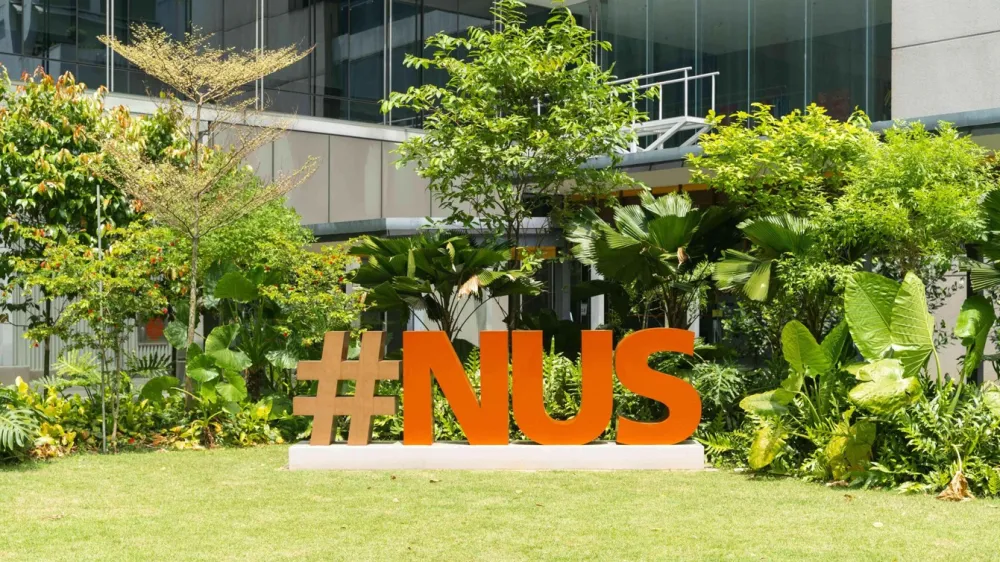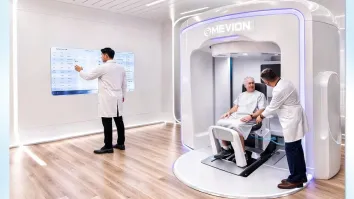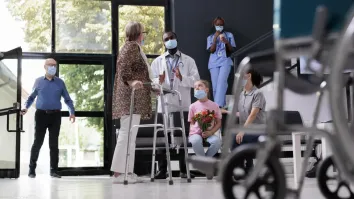
National Cardiovascular Center Harapan Kita clinches three awards at Healthcare Asia Awards 2020
The hospital won awards for patient care, service delivery innovation and providing specialty services.
National Cardiovascular Center Harapan Kita (NCCHK) is Indonesia’s national cardiovascular hospital. Conducting 4,000 surgical and 9,100 non-surgical cardiovascular intervention procedures in a year, NCCHK is the leader in cardiovascular care, education and research, and is hailed as the country’s top referral hospital for cardiovascular disease. Bagging this year’s Specialty Hospital of the Year, Patient Care Initiative of the Year and Service Delivery Innovation Initiative of the Year Awards for Indonesia, the cardiovascular center is one of the most awarded hospitals in the region.
NCCHK is not only reaching its top in number of procedures for cardiovascular surgery and non-surgical intervention alone. The NCCHK has been supervising some central, referral or local hospitals over the country to be able to conduct holistic cardiovascular services including diagnostic procedures, non-surgical interventions, and cardiac surgery to assure that a good cardiovascular service can be accessible by all Indonesians.
In the metropolitan area of Jakarta, to optimize the management of patients with ST-segment Elevation Myocardial Infarction (STEMI), NCCHK organized and initiated the Jakarta Cardiovascular Care Unit (CCU) Network System since 2010. The Jakarta CCU Network System pledges the best cardiovascular services for the community by initiating an early diagnosis, and immediate transfer for a timely primary percutaneous coronary intervention (pPCI) in STEMI patients using a pharmaco-invasive strategy (fibrinolytic therapy with an invasive procedure back-up).
Based on data from the Jakarta Acute Coronary Syndrome (JAC) registry conducted at the Emergency Department of the NCCHK Emergency Department, that during 2008 to 2009, out of 654 STEMI patients who admitted during the period, 59% of patients did not receive acute reperfusion therapy, and 80% of the non-reperfused patients had symptom onset of more than 12 hours when they arrived at the Emergency Department of the hospital.
In addition to this, the in-hospital mortality rate of non-reperfused patients reached 13.3%, which was significantly higher compared with patients who received fibrinolytic or pPCI (6.2% and 5.3%, respectively). The analyses of the JAC registry are routinely being used as the performance measures of the Jakarta CCU Network System, and have contributed to many publication in international journals. The results are often used as feedback to improve care. Data from JAC registry showed that compared with the period 2008-2009 (N=624), patients who admitted in the period 2015-2016 (N=1052) were receiving more pPCI (56% vs. 28%, p<0.001), fewer patients did not receive reperfusion therapy (37% vs. 59%, p<0.001), and shorter door-to-device time (median 82 vs. 94 minutes, p<0.001). Overall in-hospital mortality decreased from 9.6% to 7.1%. The data showed that half a decade after the implementation of the STEMI network in Jakarta, Indonesia, the result is better and faster care for patients with STEMI and this has been associated with lower in-hospital mortality.
The STEMI network is organized with a close collaboration with the Ministry of Health, Republic of Indonesia, as well as the Jakarta Regional Government, and may guide the general practitioners and nurses who work at public and private medical facilities to react faster when treating STEMI patients, particularly in health centers with no catheterization laboratory facilities.
Moreover, the Jakarta CCU Network System also guides the physician and nurses to refer the patients to the nearest PCI capable hospital for pPCI.
The prompt activation of the STEMI Care referral system in the region, which includes ambulance service and reperfusion strategy is made through the emergency number 119, a hotline number supervised by Jakarta’s Government Ambulance Service.
Currently, NCCHK organizes the referral protocol through the network system in order to obtain the ECG transmitted from public health clinics or public hospitals. The ECG recording will then be forwarded to the nearest PCI capable hospital, followed by rapid transfer for pPCI in case of STEMI.
To broaden its reach, NCCHK also invites general practitioners and nurses who work at the public health clinics and hospitals, private hospitals and the government ambulance service to undergo a two-week internship at the hospital’s Emergency Department to learn the STEMI protocol and how to fill out the JAC Registry.
At present, accomplishing the JAC registry data can be done digitally via cellular phone, iPad or computer for 24 hours through a dedicated web-based registry. Meanwhile, clinicians can also acquire the treatment guidelines or protocol for heart attack patients at the project’s website.
Watch the awards presentation and interview below to know more about their winning project:
The Healthcare Asia Awards 2020 was held virtually on 14-17 April 2020.
This year's nominations were judged by Chris Hardesty, Director, Healthcare & Life Sciences Practice, KPMG; Abhay Bangi, Partner, Life Sciences & Healthcare Lead, Ernst & Young; Tan Boon Kai, Partner, Audit & Assurance, BDO LLP; Mairin Reid, Director, Life Sciences & Healthcare, Deloitte.
If you would like to join the 2021 awards and be awarded as one of the most outstanding healthcare companies in the region, please email Julie Anne Nuñez at [email protected]



















 Advertise
Advertise






